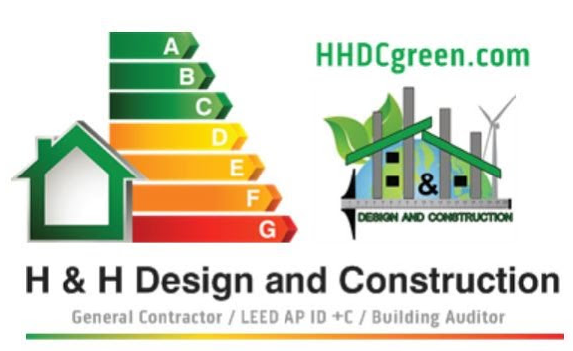
Most of the 130 million households in this country were built before modern energy codes were established and implemented. This results in these homes suffering from problems of energy efficiency ranging from energy-intensive to a low level in the indoor thermal comfort and indoor air quality.
The U.S. Environmental Protection Agency and the Department of Energy launched a national program: “Home Performance with ENERGY STAR” to provide a comprehensive solution to all residents to retrofit their homes improving energy efficiency and comfort, while helping to protect the environment and enabling huge savings..
IMPORTANCE OF HOME ENERGY EFFICIENCY
The buildings in the U.S. represent 40% of the budget of the nation’s energy and provide energy conservation will represent a huge saving. The benefits of implementing these new energy codes, is reflected in the significant reduction in consumption, cost and CO2 emissions reduction. Studies by Building Energy Codes Program (BECP) show that the current efforts of the program will result in 1.7 trillion Btu saved annually by 2030.
ENERGY AUDIT
Conducting an energy audit on your property is of great importance since it evaluates the performance of its structure and equipment as a whole-house. This assessment analyzes the flow of energy, determining leaks location, the efficiency of electrical appliances as well as indoor air quality and the possible presence of CO2 levels. This analysis will determine areas that require insulation and ductwork sealing, as well as techniques that can be implemented to improve heating and cooling systems, identifies appliances and lighting that can be replace by high-efficiency appliances such as ENERGY STAR or LED lamps.
Professional energy auditors use blower door tests to help determine a home’s air tightness. During a professional energy audit, an energy auditor analyzes your energy bills, completes visual, health and safety inspections, and may use special equipment — such as a blower door and an infrared camera — to detect sources of energy loss.
Based on the data collected, an energy audit will provide you with a comprehensive home energy report that shows which energy efficiency upgrades are best for your home and your potential energy savings. With this report you will learn how you use energy, determine where it’s being wasted and prioritize your efficiency upgrades. Making energy efficiency upgrades identified in a home energy audit can save 5-30 percent on your monthly energy bill while also ensuring the health and safety of your house.
IMPORTANCE OF BUILDING TIGHTNESS:
Airtightness is the control of airflow in a building. When a building is properly tighten leaks DO NOT occur at ceiling or wall junctions or cracks. These leaks create discomfort & energy loss. A building that solves for airtightness also protects the structure over its’ lifetime and will offer a better indoor quality.
These are some reasons for establishing the proper building tightness:
- Reducing energy consumption due to air leakage
- Avoiding moisture condensation problems reducing chance of mold formation.
- Avoiding uncomfortable drafts caused by cold air leaking in from the outdoors increasing thermal comfort.
- Determining how much mechanical ventilation might be needed to provide acceptable indoor air quality. Better performing ventilation system inside the house.
INCENTIVES AND PROGRAMS
There are numerous incentive and programs from local, state and federal agencies aiming to help residents to reduce the costs associated with energy audits, implementation of techniques. Also, financial programs that help to implement the upgrades on the property with 0 down payment and 100% financing.
By: Maria M Hernandez
Building Analyst, LEED AP, CGC



